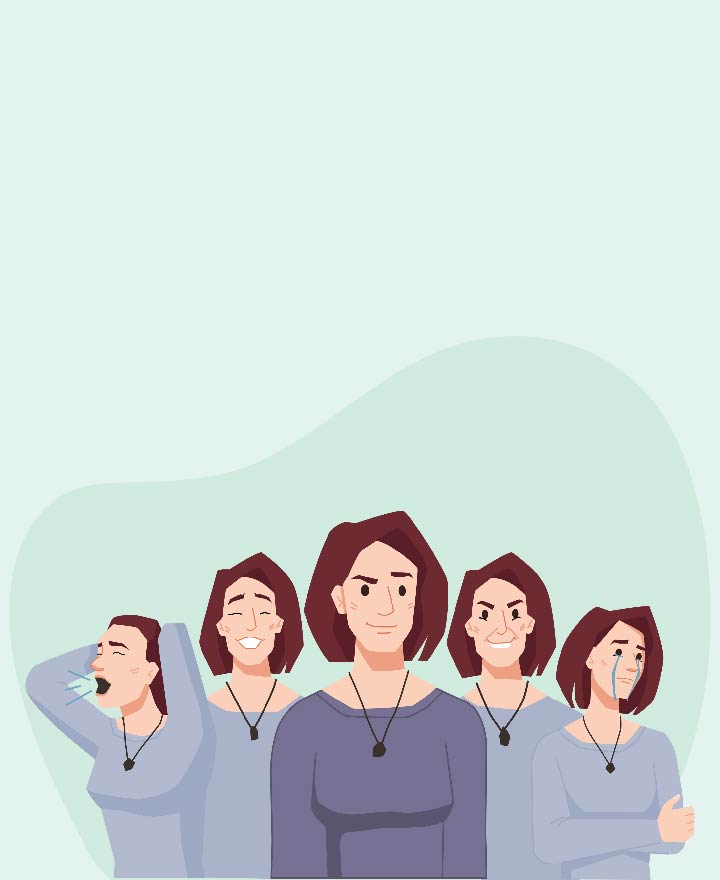

Understanding Persistent Depressive Disorder
Anyone suffering from depression would have a question — when will it end? If the person is dealing with Persistent Depressive Disorder (PDD), the answer won’t be an easy one. A person experiencing PDD goes through long-lasting and continuous feelings of depression. Even joyous events or occasions fail to brighten up the days. Coping with its many symptoms is a mammoth task, and the person needs to brave the recurring episodes of mood swings or persistent sadness. Let’s discover more about this disorder.
What is meant by Persistent Depressive Disorder?
Persistent Depressive Disorder is another form of chronic depression that lasts longer. It lasts at least two years in adults and one year in children and teens. The symptoms usually come and go but they last for more than 2 months at a time. PDD is not as severe as major depression, but the symptoms are more or less the same.
Symptoms of PDD include:
• Feeling lonely, sad, empty, or hopeless
• Low self-esteem
• No interest in normal activities
• Problem concentrating and making decisions
• Fatigue
• Low energy
• Sleep problems, sleeping too much or lack of it
• Increased or decreased appetite.
• Increase or decrease in weight.
• Avoiding social activities
Persistent Depressive Disorder is treated with medications such as antidepressants and/or counselling like talk therapy. Making changes to your lifestyle can also improve your symptoms. If you cannot prevent it, you can make it less severe with a well-balanced diet, exercise, taking the prescribed medications, limiting alcohol, and talking to your doctor about any changes in symptoms.
Conclusion
Since depression PDD is a chronic condition lasting for years, it is important to learn how to cope with it. Along with medication and counselling, lifestyle changes and doing things that you enjoy can help you feel better and manage PDD depression.
One of the important components of our overall wellness is also being financially secured. Healthcare emergencies can happen any time, but a good health insurance policy can protect you from such uncertain situations. To know more about Wellness and other health related tips, visit the Wellness Corner.
Source: mayoclinic
Disclaimer: This blog provides general information and discussions about health and related subjects. The information and other content provided in this blog, website or in any linked materials are not intended and should not be considered, or used as a substitute for, medical advice, diagnosis or treatment. Kindly contact your Doctor before starting a new medicine or health regime.
Related Articles
The Effects of Depression on the Body and Overall Wellbeing
The Complete Guide to Dealing with Postpartum Depression
The Link Between Social Anxiety Disorder and Depression
Depression - What Can Meditation Do for You
7 Things You Should Never Say to a Person With Depression
Published on November 16, 2023














 Health Insurance
Health Insurance  Travel Insurance
Travel Insurance  Car Insurance
Car Insurance  Cyber Insurance
Cyber Insurance  Critical Illness Insurance
Critical Illness Insurance
 Pet Insurance
Pet Insurance
 Bike/Two Wheeler Insurance
Bike/Two Wheeler Insurance  Home Insurance
Home Insurance  Third Party Vehicle Ins.
Third Party Vehicle Ins.  Tractor Insurance
Tractor Insurance  Goods Carrying Vehicle Ins.
Goods Carrying Vehicle Ins.  Passenger Carrying Vehicle Ins.
Passenger Carrying Vehicle Ins.  Compulsory Personal Accident Insurance
Compulsory Personal Accident Insurance  Travel Insurance
Travel Insurance  Rural
Rural